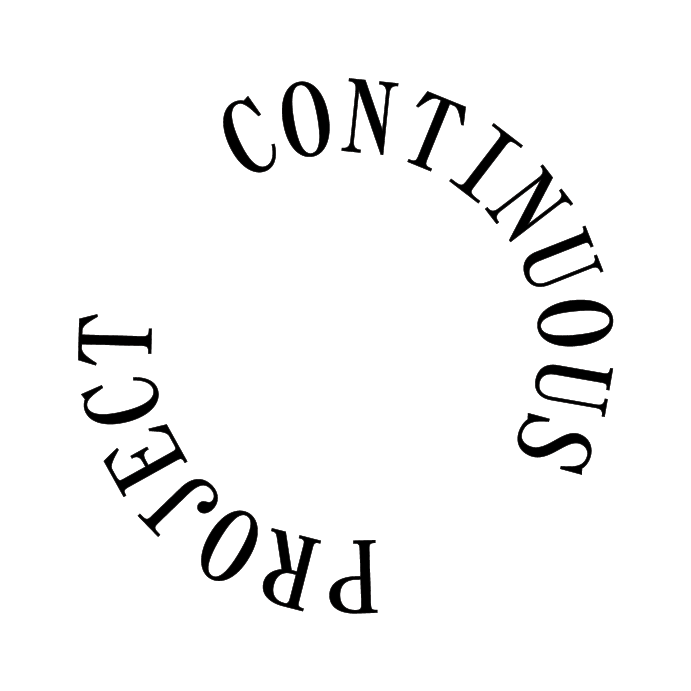Do I need to consider reference fatigue?
Dear CP,
I’m considering applying for the Guggenheim again this year, but I am concerned about asking the same people I’ve asked in the past for references. I’m reluctant to ask the same people for help when the application hasn’t yet been successful, but the same group of people are the folks who are best positioned to speak on my behalf. What’s the etiquette here? Do I need to consider reference fatigue?
Thank you for this evergreen question! Hesitation around asking someone to act as a reference, whether for the Guggenheim or other applications is something I field on a regular basis. Many people worry that it’s too much to ask folks to take the time and the energy to act as a reference, especially year after year.
I can speak from experience that recommenders expect to be asked repeatedly by the same people. If I curated an exhibition of or wrote an essay about an artist’s work, then it’s likely that I am one of a handful of people who have thought deeply about their work and have seen their process and dedication firsthand. This is a mutually privileged relationship; it makes sense that an applicant would reach out again and again to request a reference, and I’m happy to do it.
I can also speak from experience that there is an expiration date on the expectation that a reference will be available for repeated applications. If there has been a long gap since we’ve worked together, or if I’ve written several recommendations for applications that haven’t been successful, then I may decline. Identifying the endpoint of an applicant/reference relationship is subjective for both the applicant and the reference, so ongoing communication is key—so is not taking it personally when a reference declines your request; it’s usually not personal.
I reached out to other artists, curators, and professors for a variety of voices to respond to your question. They all expect to be asked repeatedly by the same people. One colleague outlined the nuance of the applicant-reference relationship: “When I'm asked repeatedly by an individual, I don't mind because there is this understanding that's been established. When I agree to be someone's reference, it's because we have a relationship towards which it makes sense for me to commit and support in this more extensive, longer-term way; if it's not someone like that, I demur from the get-go. Also, because I've already written a letter for the first time, it's not as much work to tailor and update the letter for other applications.”
Another aspect of approaching references is the timing of the request. Everyone I spoke to about this agrees that they’re happy to act as a reference for someone whose work they know well, especially when they are given enough notice to fit it into their schedule and do a great job on the applicant’s behalf. Reaching out as soon as you know you want to apply to something allows them that opportunity. One colleague shared, “I think asking the same person multiple times in a row is okay, as long as you are really organized with your request, and ask well in advance of the deadline.” Another agreed, especially for the most popular grant deadlines, or academic applications that are all due around the same time: “Be in touch with your recommender way in advance so they won’t be already committed” during the times of year when lots of people are seeking references. And another colleague added perspective for school or job applicants: “If you're applying for loads of things at once, try to consolidate the request in one email, if possible.”
One of my favorite responses to this Dear CP question underscores one of the messages we aim to get across in the Guggenheim Application Cohort: Selecting references isn’t only about having bold faced names on your list of recommenders. My colleague said: “Make sure you're asking the best person for that specific application, taking into account how well they know you and whether they can speak in compelling terms about why you're so fantastic. I'm sure there are hiring committees and grant reviewers that swoon over big names, but what truly impresses is a memorable recommendation given by someone who clearly knows you personally and can offer concrete stories and examples over empty, superlative-laden praise.”
Do applicant/reference relationships run their course? Yes! It’s important to be sensitive to the strength and relevance of the connection at any given time. One colleague shared: “If you are not successful for a few years, I'd say it's time to move to another person.” And another: “I do recommend keeping a rotation going with your recommenders, phasing out people after a few years and moving on to others.”
One thing CP clients are familiar with from working with me is how often I remind folks that relationships are everything. Tending to community is nourishing in so many ways, including assuring that there will always be one or two people who will be a great fit as a reference when the time comes to rotate. Reaching out to let references know how an application turned out is one way to keep in touch. Gratitude is a powerful connector, so always reach out once you receive the decision to let your recommenders know whether you received the opportunity or not and thank them for their time and support. You might even ask at that point if they’re open to acting as a reference again in the future, keeping lines of communication wide open.
